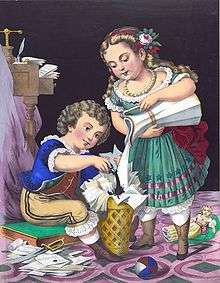Mischief

Mischief or malicious mischief is the specific name for different criminal offenses in a number of different jurisdictions. While the wrongful acts will often involve what is popularly described as vandalism there can be a legal differentiation between the two. The etymology of the word comes from Old French meschief, which means "misfortune", from meschever, "to end badly".
Scotland
Malicious mischief is an offence against the common law of Scotland. It does not require actual damage to property for the offence to be committed, financial damage consequential to the act is sufficient, unlike vandalism which requires actual damage to property to form the offence, the latter being defined by section 52 of the Criminal Law (Consolidation) (Scotland) Act 1995; the two are different offences.
United States
In United States criminal law, mischief is an offense against property that does not involve conversion. It typically involves any damage, defacement, alteration, or destruction of property. Common forms include vandalism, graffiti, or some other destruction or defacement of property other than arson. Governed by state law, criminal mischief is committed when a perpetrator, having no right to do so nor any reasonable ground to believe that he/she has such right, intentionally damages property of another person, intentionally participates in the destruction of property of another person, or participates in the reckless damage or destruction of property of another person.[1] Criminal mischief is usually a misdemeanor.
References
- ↑ "reckless legal definition of reckless. reckless synonyms by the Free Online Law Dictionary". Legal-dictionary.thefreedictionary.com. Retrieved 2013-11-01.
External links
-
 The dictionary definition of mischief at Wiktionary
The dictionary definition of mischief at Wiktionary